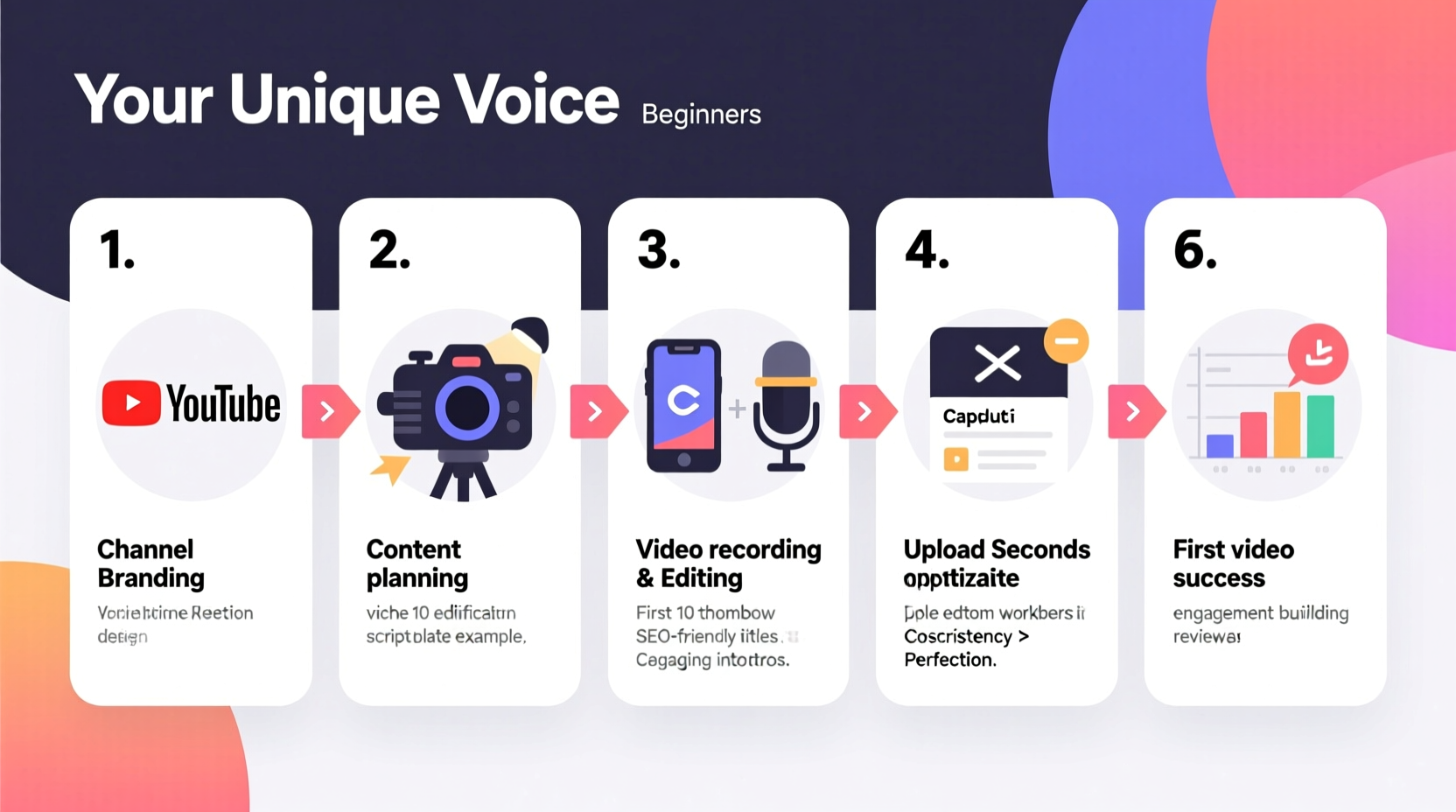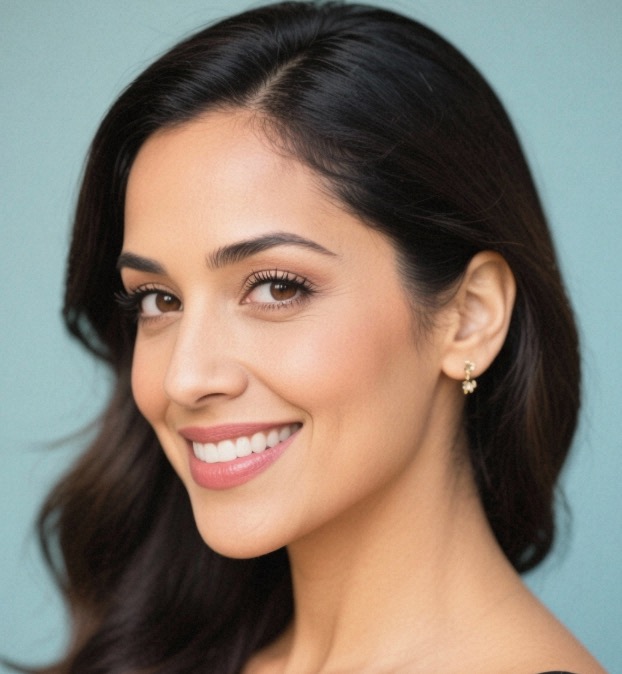Starting a YouTube channel can feel overwhelming, especially when you're new to content creation. But behind every successful YouTuber is someone who once uploaded their first video with uncertainty and excitement. The process doesn’t require expensive gear or technical expertise—just clarity, consistency, and a plan. This guide walks through each essential phase: defining your purpose, setting up your channel, creating compelling content, optimizing for visibility, and measuring early progress.
Define Your Niche and Target Audience

Before touching any settings or equipment, determine what your channel will be about. A focused niche increases discoverability and builds trust faster than generic content. Ask yourself: What do I enjoy talking about? What knowledge or experience can I share? Who would benefit from watching me?
Possible niches include tech reviews, cooking tutorials, personal finance tips, travel vlogs, or study motivation. Choose something sustainable—topics you won’t tire of after five videos.
Ask These Questions Before Choosing a Niche
- Am I passionate enough to create multiple videos on this topic?
- Is there an audience searching for this kind of content?
- Can I differentiate myself even slightly from others?
- Will this align with long-term goals (e.g., brand building, monetization)?
Set Up Your Channel Correctly
Once your niche is clear, it's time to build the foundation. All you need is a Google account to begin. Here’s how to set up your channel professionally—even as a beginner.
- Sign in to YouTube using your Gmail account.
- Click your profile icon > Create a channel.
- Name your channel thoughtfully—ideally matching your niche or personal brand.
- Upload a high-quality profile picture (recommended: 800x800 pixels).
- Add a custom banner (2560x1440 pixels) that reflects your theme.
- Write a concise channel description including keywords related to your content.
Your channel art and bio are often the first impression viewers get. Treat them like a digital storefront—clean, inviting, and informative.
Essential Channel Setup Checklist
- ✅ Channel name finalized and consistent across platforms
- ✅ Profile photo uploaded (clear face or logo)
- ✅ Banner image designed (use free tools like Canva)
- ✅ About section filled out with keyword-rich description
- ✅ Links added to social media or website (if applicable)
Create Your First Video with Confidence
Your debut video doesn't have to be perfect—but it should deliver value. Focus on solving one small problem or answering one common question within your niche.
For example, if your channel is about home workouts, your first video could be “5-Minute Morning Routine to Boost Energy.” Keep it under 5 minutes initially to reduce editing complexity and viewer drop-off.
Simple Production Workflow
- Script your video: Write key points or full narration to stay focused.
- Record with available tools: Use your smartphone in landscape mode; ensure good lighting (near a window works well).
- Record audio clearly: Speak close to the microphone, minimize background noise.
- Edit simply: Free software like DaVinci Resolve or iMovie lets you trim clips, add text, and improve sound.
- Add intro/outro: Even a simple title card helps establish professionalism.
“Your first 10 videos are practice. Don’t expect viral success immediately. Focus on showing up consistently.” — Casey Neistat, filmmaker and former YouTuber
Optimize for Discovery and Engagement
Uploading isn’t the finish line—it’s the starting point. YouTube is the second-largest search engine, so optimization matters. Without proper SEO, even great content may go unseen.
| Element | Best Practice | Avoid |
|---|---|---|
| Title | Clear, under 60 characters, includes primary keyword | Vague titles like “Watch this!” or “My Thoughts” |
| Thumbnail | High contrast, readable text, expressive faces (if applicable) | Cluttered images or low-resolution graphics |
| Description | First 2–3 sentences summarize content + keywords; link resources | Empty or auto-generated descriptions |
| Tags | Use 5–8 relevant tags (mix broad and specific) | Irrelevant trending tags (“Fortnite,” “MrBeast”) |
After uploading, manually fill in all fields. Let YouTube auto-generate captions, then review them for accuracy. Enable comments and respond to early feedback—it signals engagement to the algorithm.
Mini Case Study: From Zero to First 1,000 Views
Sophie, a recent college grad, launched a channel called “Budget Baking” to share affordable dessert recipes. Her first video, “$3 Chocolate Mug Cake,” used her phone, natural light, and basic editing. She titled it clearly, created a bright thumbnail with bold text, and described ingredients and cost breakdown in the description.
Within two weeks, the video gained traction through search and suggested feeds. People searched “cheap dessert ideas” and found her content because she used those exact phrases in her title and description. By responding to comments with substitution tips, she encouraged repeat visits. That single video brought over 1,200 views and 80 subscribers—proving that targeted, useful content wins.
Avoid Common Beginner Mistakes
New creators often stall due to preventable errors. Awareness alone can save months of frustration.
- Inconsistent branding: Using different fonts, colors, or tones across thumbnails confuses audiences.
- Overcomplicating production: Waiting for perfect lighting or gear delays launch. Start simple.
- Ignoring analytics: Check YouTube Studio regularly to see retention rates and traffic sources.
- Posting irregularly: One video every six months won’t grow a channel. Aim for steady rhythm—even biweekly.
Frequently Asked Questions
Do I need special equipment to start?
No. A smartphone with a clean lens, decent lighting (natural or affordable ring light), and quiet space are enough. Invest in better gear only after validating interest through early uploads.
How long should my first video be?
Aim for 3–7 minutes. Shorter videos are easier to produce and retain attention. As you improve, adjust length based on topic depth and audience behavior.
When will I start getting views?
Most new videos get minimal views at first. It takes time for YouTube to understand your content and recommend it. Consistency over 6–10 videos typically leads to gradual growth.
Take Action Today
Launching a YouTube channel is less about perfection and more about persistence. Every expert creator started exactly where you are now—with an idea, a camera, and the courage to press record. Define your focus, set up your channel with care, create a helpful first video, and optimize it for real people searching for answers.
Don’t wait for ideal conditions. Upload your first video, learn from the response, and keep improving. Growth comes not from flawless starts, but from continued effort. The world needs your voice—share it with confidence.









 浙公网安备
33010002000092号
浙公网安备
33010002000092号 浙B2-20120091-4
浙B2-20120091-4
Comments
No comments yet. Why don't you start the discussion?